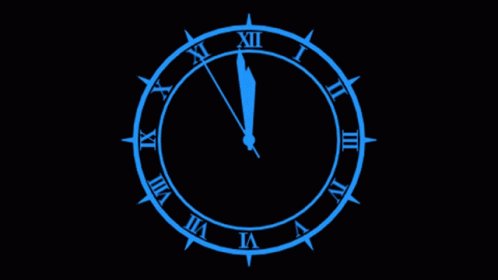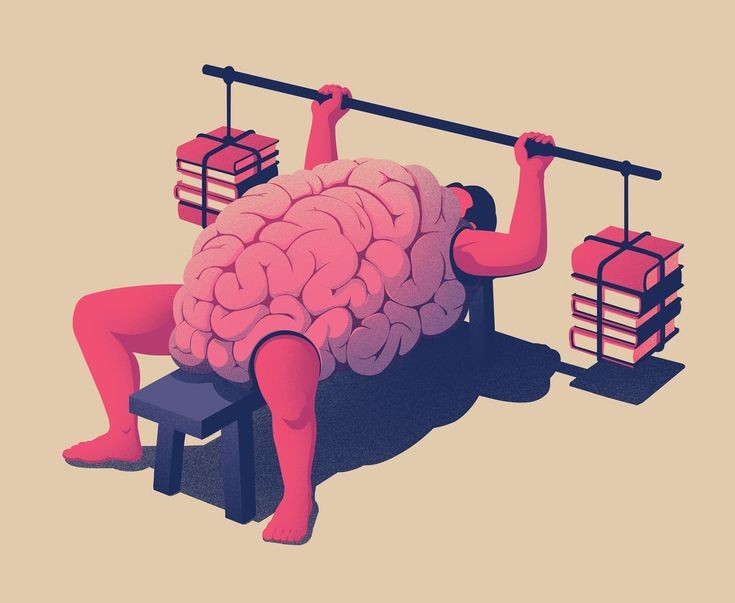2/
I was tired. But not just tired from the lack of sleep. It had been a cognitively hard night with sick-sick patients. While it had gone mostly fine, my brain was still steaming. Not to mention the sustained tachycardia I had every time I took call in the PICU.
It was rough.
3/
This was before duty hours reform. And it’s relevant here is because it explains why I had clinic that afternoon--even though I was post call.
I had just one wish:
To get through rounds in time to finish all my work and avoid having to return to the PICU after clinic.
4/
7:30AM.
Morning report was about to start, and rounds would be right after. I silently prayed that we could finish by 11:30 to afford me time I to tie up loose ends before clinic.
But deep down, I knew this wasn’t likely. Not with this attending it wasn’t.
Nope.
5/
This attending liked to teach. And teach and teach. His Socratic soliloquies were legendary. And mostly, he was considered a great teacher.
Yup.
But even the very best teaching needs the fertile ground of a teachable moment. In other words, timing matters.
It does.
6/
Morning report went fine. I presented one of my admissions, and the chiefs were kind. My co-resident offered me tiny thumbs ups from the back row and fist pumps when I knew answers. I was glad for that.
As we filed out, I glanced at the clock. 8:24 AM.
Maybe I’d get lucky.
7/
I did not get lucky.
My attending first launched into a diatribe about asthma management failures. He talked about AV mismatches, ABGs, then somehow landed fetal hemoglobin. 30 minutes in and we hadn’t even discussed the first patient.
The clock struck 9. I clenched my jaw.
8/
We all knew that he always targeted the post-call resident. Question after question regardless of your level of exhaustion. That was his thing.
Him: “Medicine is tiring. But we signed up for this.”
That was what he’d shrug and say after his unapologetically long rounds.
9/
And, while I got that, what I didn’t get was how oblivious those like him were to the blank stares of fatigue that met those post-call impromptu PM chalk talks. Painful isn’t a strong enough word for it.
Ah, man.
And so. He talked & asked & probed. All directed at tired me.
10/
First, were pathophysiology questions about sepsis and ventilators. Then came queries about the pharmacokinetics of some of the meds we were using. From there, he moved to status epilepticus and asked me questions about the continuous EEG.
I did my best. But I was so tired.
11/
Him: "Why a pentobarbitol coma, Kimberly?”
Me: "Um what?"
That is literally what I said in response. Because I knew it was a set up question for another 25-minute teaching point. Which meant the tiniest chance of me getting ANY more work done before clinic was near zero.
12/
Him: "Pentobarbitol. Why do we use it in refractory status epilepticus?"
Me: "Um, to stop the seizures. And quiet brain activity."
Him: "Be more specific. Talk me through the mechanism of what happens in a noisy brain that sees pentobarb?"
Just then, the clock struck noon.
13/
It was official. I’d have to return to the PICU after clinic to finish my work.
Damn.
The team was shifting on their feet. But he was still teaching; his voice now evolving into the Charlie Brown adult garble.
Him: "Hello?"
Me: "Sir?"
Him: "So? What say you?"
Uggh.
14/
My eyes began to throb with tears. When my chest started heaving, I knew it was a wrap. My mouth hinged open to talk but only a squeak came out.
Me: “I don’t know."
Him: *smiling* “Oh, now that’s something you should know.”
That did me in.
15/
Angry, tired tears were now falling straight from my eyes to the linoleum floor in big splashes.
Nurse: *touching my arm* "Are you okay?"
Him: “It’s tough, but this is what we signed up for.”
I kept my eyes on my scuffed clogs, chest still quivering.
Me: "I'm okay."
16/
And that was it. No further acknowledgement of my brief outburst or any such thing. We just kept rounding.
Yep.
30 minutes later, he finally let us go.
I took 2 bites of my cold Stromboli, changed clothes, and hurried to my busy clinic.
It was as awful as it sounds.
17/
Later that year, I was a senior on the wards with a totally different attending. It was a Saturday morning and things had been busy.
He said: "It's Saturday and we aren’t admitting today. The teachable moment this morning is efficient, patient-centered management. Got it?”
18/
He told me after rounds that he could see that we were tired. Physically AND cognitively.
Him: "It’s good to talk about the music but sometimes you've got to know when it’s time to just shut up and dance.”
This was a defining teachable moment that I never, ever forgot.
19/
Thankfully, we’ve come a long way since the pre duty hours reform days. And though those savage schedules have evolved, when it comes to teaching rounds, there's nothing new under the sun.
Nope.
Somebody somewhere is still talking longer than they should. Even in 2020.
20/
I’m grateful to both of those attendings for what they taught me and think of them every time I’m on the teaching service.
I’m also grateful for roller coaster rides, good books, and vacations--the best of which have a beginning, a middle, and a well-timed end.
Yeah.👊🏾🤐































